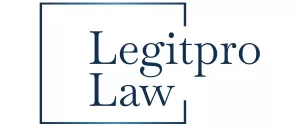- within Corporate/Commercial Law topic(s)
- in United States
- with readers working within the Retail & Leisure and Law Firm industries
- within Corporate/Commercial Law, Employment and HR and Antitrust/Competition Law topic(s)
- with Senior Company Executives, HR and Finance and Tax Executives
In a significant advancement for corporate compliance in India, the Ministry of Corporate Affairs (MCA) has issued General Circular No.03/2025 dated September 22, 2025, granting companies the extension to hold Annual General Meetings (AGMs) and Extraordinary General Meetings (EGMs) via Video Conference (VC) or Other Audio Visual Means (OAVM) until further notice.This circular represents a shift from the temporary extensions observed during and after the COVID-19 pandemic, indicating a potential move towards incorporating virtual meeting options as a standard aspect of corporate governance under the Companies Act, 2013.
Historical Context From Pandemic till Today
The evolution of virtual meetings in India commenced as a necessary reaction to the worldwide health crisis.In May 2020, during the nationwide lockdowns, the MCA released General Circular No.20/20201, permitting companies to conduct AGMs through VC or OAVM for the financial year concluding on March 31, 2020, accompanied by comprehensive procedural safeguards to guarantee shareholder engagement and transparency.This was succeeded by General Circular No.14/2020 in April 20202, which allowed for EGMs through similar virtual platforms or postal ballots, responding to the immediate necessity for decision-making without physical gatherings.
The following years witnessed annual renewals of these concessions, mirroring the changing corporate environment.For example, extensions were provided until September 30, 2024, through General Circular No.09/20243, recognising the persistent advantages of virtual formats even as normalcy was reinstated.These initiatives not only alleviated health concerns but also broadened access to corporate events, facilitating remote involvement from shareholders across various regions and decreasing logistical challenges.
The most recent circular expands upon this groundwork, eliminating the fixed expiration date and opting for an open-ended validity "until further orders."This indefinite extension indicates that the MCA perceives virtual meetings as not just a temporary solution but as a practical and efficient alternative to conventional physical gatherings.It resonates with global trends where jurisdictions such as the UK and Singapore have similarly incorporated hybrid or virtual options into their corporate laws post-pandemic.
Key Provisions of General Circular No. 03/2025
The circular explicitly reinforces the frameworks set forth in previous directives.For AGMs, companies are encouraged to comply with paragraphs 3 and 4 of Circular No.20/2020, which outline essential provisions such as:
- Notice and Agenda:A clear notice of 21 days must be provided, indicating the venue as "VC/OAVM" and including comprehensive instructions for joining the meeting, along with login details and contacts for technical assistance.
- Participation and Voting:Every shareholder must be given the chance to attend, engage, and vote remotely.This encompasses facilities for live question-and-answer sessions and e-voting systems integrated with the platform.
- Quorum and Recording:The quorum requirements continue to align with Section 103 of the Companies Act4, confirmed through digitally maintained attendance rolls.The entire proceedings must be recorded on video and retained for a minimum of eight years, with a report on the meeting's conduct submitted to the Registrar of Companies (RoC) within 30 days.
For EGMs, the provisions reflect those in Circular No.14/2020 and its amendments, permitting execution via VC/OAVM or through postal ballots for matters needing shareholder consent.Notably, the circular allows ordinary and special resolutions to be transacted in these modalities, ensuring that key decisions such as amendments to articles of association or appointments of directors can advance without delay.A significant clarification in the new circular is that statutory timelines are not extended.Section 96h35 of the Companies Act stipulates that AGMs must occur within six months of the financial year's conclusion, and EGMs must be held as per board resolutions.The MCA stresses that utilising a virtual format does not provide extra time and non-compliance may result in penalties under Sections 99 and 118, including fines of up to INR 1 lakh for the company and INR 50,000 for defaulting officers.This highlights the equilibrium between flexibility and accountability, preventing the misuse of the leniency offered.All other existing requirements from earlier circulars remain in effect, including the necessity for a physical venue declaration (even if unused) for AGMs and the appointment of a scrutiniser for postal ballots.Companies must also guarantee compliance with data security and privacy regulations under the Information Technology Act, 2000, to protect sensitive discussions.
Towards a Digital Corporate Framework
The indefinite extension provided by Circular No.03/2025 signifies a maturation in India's corporate governance landscape, evolving from reactive responses to the pandemic towards proactive digital facilitation.As businesses confront economic challenges, this adaptability fosters agile decision-making while maintaining compliance with statutory requirements.However, the "until further orders" stipulation raises questions about its permanence.Will the MCA solidify these provisions through legislative amendments, or will it continue to assess changing requirements?Industry organisations such as the Institute of Company Secretaries of India (ICSI) have consistently pushed for legal recognition of virtual meetings, highlighting their effectiveness.Companies ready to adopt it will not only guarantee smooth compliance but also position themselves as forward-thinking entities in a hybrid environment.As we mark the end of another fiscal cycle, the message is clear: virtual is viable, and perhaps, the new normal.
Footnotes
1 MCA allows companies to hold Annual General Meetings (AGMs) through VC or OAVM. (n.d.).
2 MCA allows companies to hold Extraordinary General Meetings (EGMs) through VC or OAVM complemented with e-Voting facility/simplified voting through registered emails. (n.d.).
3 Clarification on holding of Annual General Meeting (AGM) and EGM through Video Conference (VC) or Other Audio Visual Means (OAVM) and passing of Ordinary and Special resolutions by the companies under the Companies Act, 2013 – MCA GC No. 09/2024 dated 19.09.2024.
4 Section 103.Quorum for meetings.
5 Section 96.Annual general meeting.
The content of this article is intended to provide a general guide to the subject matter. Specialist advice should be sought about your specific circumstances.
The content of this article is intended to provide a general guide to the subject matter. Specialist advice should be sought about your specific circumstances.


